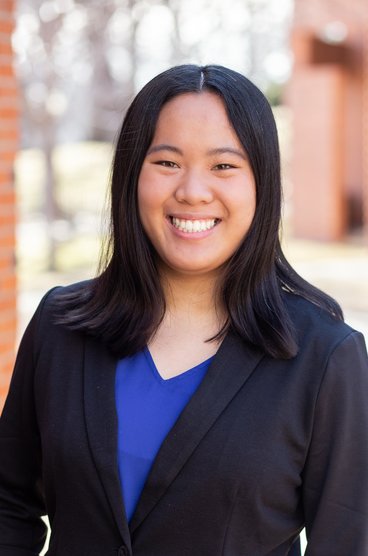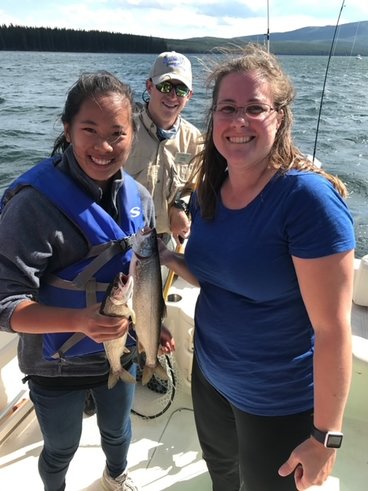
Written by Rachel Kraft Mattson
Madison Stoltzman, a junior specializing in food engineering in the Bioproducts and Biosystems Engineering major (BBE) was initially drawn to biomedical engineering, but after after working with a graduate student on a project exploring pea powder as a plant-based protein, she soon shifted her focus.
“That's the project that sparked my interest in food engineering and began my journey in BBE,” said Stoltzman.
As her interest in food engineering grew, she became increasingly focused on food security and sustainability, and how engineering could provide a way for her to have an impact on many lives.
According to the Food and Agriculture Organization of the United Nations, experts hoped the world would come out of the pandemic and food security issues would improve, but world hunger continued to rise in 2021. An estimated 828 million people are affected by hunger worldwide, and further increases in global hunger were reported due to worsening inequities across the world.

“As a young child, I was adopted from China during the one child policy. So, in terms of opportunities I likely would have had in China, there were next to none,” said Stoltzman. “Essentially, both education and my adoption granted me a huge opportunity to be able to make a difference. I firmly believe in imparting positivity to the world, and I think the foundation of what I’m trying to do is to provide equity and opportunity.”
Stoltzman has immersed herself in several opportunities to make this a reality, including work with the Plant Protein Innovation Center on the St. Paul campus during her sophomore year. After working on campus with pea powder, she took a summer internship in quality assurance at SunOpta, a manufacturer of plant-based foods and ingredients. SunOpta was awarded “Top Work Places” in 2022 by the Star Tribune, which is in line with Stoltzman’s experience working there as an intern.
“I was able to travel to and from corporate headquarters and manufacturing plants to work on several different projects that ranged from supplier quality assurance to plant quality assurance. That was really interesting, and it gave me a lot of great insight into what it means to be an engineer within food.”

While interning at SunOpta, Stoltzman was involved with four projects over the summer. The one she is most proud of was establishing a calculatory matrix for contamination regulation, ensuring systemized food safety across production and validating whether their finished products were within local and federal regulations of food contamination.
The internship also exposed her to both the corporate side of food production, and the plant and production side. By the end of the summer, Stoltzman felt more confident walking the plant floor and talking with plant operators to perform her job duties.
In May, Stoltzman will be headed to Sicily and Florence Italy for a seminar on sustainable food systems. Her goal with the summer program is to become more agriculturally literate.
“I think it's really pivotal for people to have an appreciation of the work and time invested to produce and process our food,” said Stoltzman.
After returning from Italy, she will begin an internship at Land O’Lakes in the supply chain department as an environmental health and safety intern working to optimize sustainability within the plants.
Next fall, Stoltzman begins her senior year in BBE, continuing her journey to engineer a more equitable world, starting with widened accessibility to healthy food.
“I truly believe food engineering is a way to improve that accessibility,” said Stoltzman. “The reason I’m interested in alternative plant proteins is not necessarily to cut out all traditional meats, but to give more people access to a healthy and cheaper alternative.”
If you are interested in majoring in food engineering specialization, visit our website for more information, or reach out to BBE’s Director of Undergraduate Studies, Professor Ulrike Tschirner.